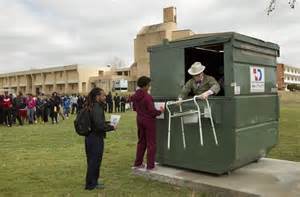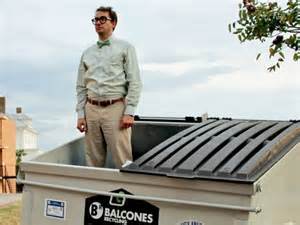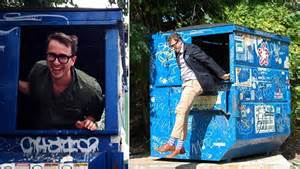I have long believed that prospects for a hopeful human future depend on radical and visionary feelings, thought, and action. Such an outlook reflects my view that the major challenges of our time cannot be met by thinking within the box, or implementing the realist agenda of doing what it is feasible while disregarding what is necessary and desirable. For instance, with respect to climate change such a conventional approach avoids asking what needs to be done to give future generations positive life prospects, but seeks, at best, to do what seems politically feasible at the moment, that is, far too little. This means not putting a cap on energy or water use, not limiting carbon emissions or prohibiting fracking, continuing to encourage economic growth, and refusing to question consumerism. In effect, this conventional approach does not meet challenges, but at most seeks to defer and mitigate harmful effects to the extent possible. In effect, it opts for a worse human future, and remains in bondage to the deformities wrought by clearly deficient neoliberal prescriptions for human fulfillment.
Against this background, it was a personal breakthrough to meet Jeff Wilson who is, of all things, a dean of the arts college and faculty member in environmental and biological sciences at Huston-Tillotson University in Austin. This is a small mainly undergraduate university with about 900 students, and is what is called a ‘historically black’ college, established in 1881 by some Christian initiatives, with the specific mission of providing higher educational opportunities for former slaves freed in the course of the Civil War. What makes Jeff charismatic is his radical sensibility that has crafted a most unlikely project that has been receiving increasing media attention—converting a trash dumpster into a place of residence, not in the name of austerity, but all in the name of promoting a vision of sustainable living. For those like me unfamiliar with dumpsters, other than as an annoyance if driving behind a garbage pickup vehicle in a crowded city, the idea of living in a 33 square foot enclosure that must be climbed to enter or leave struck me as a kind of ecological stunt when I first heard about it. Like many first impressions this one was quickly superseded by a sense of awe almost at the point of contact.
That is, until visiting the site, which is on the campus, and actually a project of a student group, intriguingly named “Green is the New Black,” and part of a vision, appropriately radical, to make black colleges take a national lead in the years ahead in producing green campuses throughout the country in every black school. Getting back to Wilson, it is obvious from appearance and style that he strikes his own pose: he is unusual in dress and deeply engaging and infectionously friendly when it comes to sociability, with lively wit and a robust sense of self-irony. He did not come to this experiment in sustainable living overnight. He had earned a PhD at the University of Canterbury and did post-doctoral work at Harvard, he has written numerous papers published in scientific journals on environmental and biological issues, and won an award as the outstanding teacher in all of Texas when he was still an assistant professor. Through it all, he realized that the academic career of a typical scholar, however dedicated, was not going to get done the job of sustainability given the obstacles.
As his girlfriend, Clara Benson, a writer by trade, remembers her first impression of Jeff, “This guy was trouble of the best variety.” And speaking of their affinity transcending differing personalities and vocations, she writes, “We live for the unexpected, the experimental, and the subtly disruptive.” My only skeptical reaction is the use of the word ‘subtly’! Jeff and Clara, as is increasingly customary in our digitized era met in cyberspace, via social media, and before long embarked on a most usual ice-breaking three week adventure journey through the Middle East and Europe with no luggage or even a change of clothing. Obviously, the idea of reinventing how we live together happily on the planet has been gestating in Jeff’s restless mind for some time. Clara’s wonderfully witty and lucid narrative of their trip together was published on November 11, 2013 by Salon.com, and won such a huge audience that a book and film are presently in the works.
The Dumpster Project is, first of all, a vivid reminder of unsustainability. It is also a carefully conceived way of showing that there are other alternative ways to organize society. Jeff started living in the dumpster on February 4, 2013, and he and students will continue to camp out there in sleeping bags for a year, relying on solar light and water hauled and then filtered from a nearby river, subsisting without any normal links to water or electric supply. This phase will be followed by adapting the dumpster to the energy and water use of the average American, getting all the appliances to be found in the average home, and measuring their environmental footprints in relation to energy and water use, with the expressed intent of dramatizing the gap between what is possible and what is necessary. And there is the third phase described as the ‘Ultimate Dumpster Home,’ which will incorporate the best of design and innovation to show that life can be fulfilling within drastically scaled down proportions, with the goal being one of creating a net-zero energy home that still manages to enjoy the comforts of a normal home. For further exposition I recommend Jeff’s website <www.dumpsterproject.org><info@dumpsterproject.org>
The overall focus, and inspiring imagery, is captured by Jeff’s slogan, “We are the new 1%!” The dumpster takes up 1% of the living space used by the average American family. Further, the energy/water regime is shaped by getting along on 1% or less of what is currently the fashion in America. At a deeper level the new 1% is based on a different kind of leadership—toward a sustainable and hopeful future—that contrasts with the old 1% that feasts on a hyper-consumptive life style, portrayed as decadent and dehumanizing in the recent film, The Wolf of Wall Street. It is a matter of repudiating the elites of wealth while celebrating emergent elites of sustainability, worthy ecological pilgrims of our time. As well, the activist challenges posed by the Occupy Movement’s claim in 2012 that “we are 99%” resonates with the conviction that change comes from the people, and not from governments and bureaucracies. Despite the smallness of the dumpster, the scope of the message is as large as the planet, or perhaps, even the universe.
I was drawn to the inspirational value of this brave trust in the power of imagination once it is made actual! In the past, I have written about the importance of engaged citizenship to heal the wounds of the planet, and praised particularly, ‘the citizen pilgrim,’ those who have embarked on a life journey in search of a better future. Citizenship, then, becomes enacted in time and is not conceived only as a dimension of space as, for instance, in opting to be ‘a world citizen.’ It is in this spirit that I acknowledge Jeff Wilson as an exemplary citizen pilgrim!





Richard, I’ve tried twice to “comment”. Can’t seem to type anything in your box. Maybe tomorrow?!! Best wishes Francis Oeser
Date: Sun, 9 Mar 2014 06:50:12 +0000 To: francisoeser@hotmail.com
Hello Richard,
What a wonderful vision to wake up to this morning — I’m going to link to this post for my Smith students. Since I’m teaching a class called “How to Live”…
With best wishes! Pam
Living in a dumpster is an interesting experiment. Perhaps a larger environment such as a tent would provide the same lessons. An improved Indian “Tepee” could be adapted. None of these habitats is really fit for modern living. That is the issue for all except those on a “quest”.
Much better would be a movement to force us off of our existing reliance on fossil fuels but still allowing us to retain a more extensive abode. We have the technology to do this now. All we lack is the will to separate money from politics. Hydrogen fuel is now affordable (the catalyst no longer needs to be platinum). Cars can use this as “on board “fuel”. It can be sent over our power grids in the form of electricity. It should be cheap enough to use in the conversion of salt water to fresh water. In addition, we can rid our planet of much methane gas by reducing or eliminating the consumption of beef and poultry and vastly improve our health. Solar power exists. Wind power exists (although birds have an issue if it is in their flight patterns), thermal power exists. NONE OF THIS IS NEW and what this very nice professor is doing is not new either.
Better you both should focus on the political side of fighting oil and gas/coal, etc. This is the change which will give society a real opportunity to save mankind and still allow my wife to have enough counter space in our kitchen and bathrooms. Anyway, she does not like the TV programs that I want to watch (and anything short of two TVs in widely spaced rooms which will allow that to continue to exist will not save this man(kind). The rest is just “fluff”.
@oldguyincolorado
Just about everything you say is true, but none of it will come to pass until the fossil fuel kings and their acolytes are forced out of business. This dumpster article is merely to call attention to that fact. And I think that is Prof. Falk^s point in addressing it. We all want our counter spaces and two TV sets, but if nothing is done to change our habits soon, we’ll all be forced to live in dumpsters – along with the garbage.
Oscar sure fit a lot of things in his trash can, maybe dumpsters are just as versatile. The only thing missing is a giant named Bruno to carry the dumpster around.